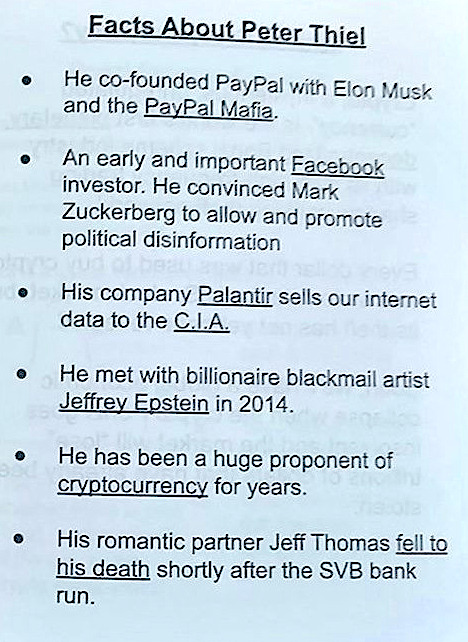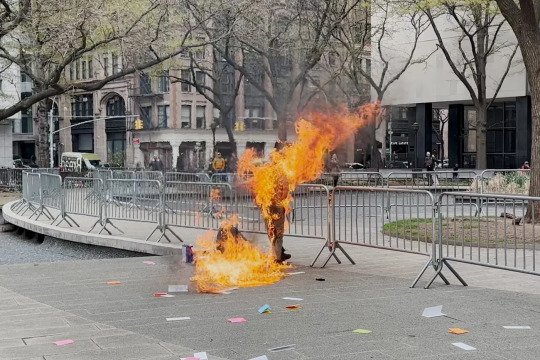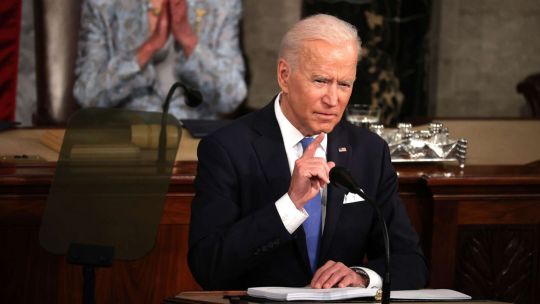#Florida Cryptocurrency Lawyer
Text
Ponzi Scheme Fraud Investigation
Delve into the intricate world of financial fraud with Silver Miller Law's investigation into Ponzi schemes. Unveiling the complexities behind these fraudulent schemes, our team meticulously navigates through layers of deception to seek justice for victims. Join us in our mission to combat Ponzi scheme fraud and protect the integrity of financial markets.
#Florida Business Lawyer#Business Litigation Lawyer In Coral Springs#Florida Cryptocurrency Lawyer#Investment Fraud Lawyer In Coral Springs#Florida Ponzi Scheme Fraud Lawyer#Malpractice Lawyer In Coral Springs#Florida Class Action Lawsuits Lawyer#Coral Springs Whistleblower Lawyer#Phone Sim Swaps Lawyer
0 notes
Text
An indictment from the US Department of Justice may have solved the mystery of how disgraced cryptocurrency exchange FTX lost over $400 million in crypto. The indictment, filed last week, alleges that three individuals used a SIM-swapping attack to steal hundreds of millions in virtual currency from an unnamed company. The timing and the amount stolen coincides with FTX's theft. Meanwhile, in a letter obtained by WIRED this week, seven lawmakers have demanded the DOJ stop funding biased and inaccurate predictive policing tools until the agency has a way to ensure law enforcement won’t use them in a way that has a “discriminatory impact.”
In Florida, prosecutors say a 17-year-old named Alan Winston Filion is responsible for hundreds of swatting attacks around the United States. The news of his arrest was first reported by WIRED days before law enforcement made it public. It was the culmination of a multi-agency manhunt to piece together a trail of digital breadcrumbs left by the teenager. In Ukraine, unmanned aerial vehicles have been powerful tools since the Russian invasion began in February 2022. But as the war rages on, another kind of unmanned robot has increasingly appeared on the front-lines: the unmanned ground vehicle, or UGV.
For months lawyers affiliated with an India based hacker-for-hire firm called Appin Technology have used legal threats to censor reporting about the company’s alleged cyber mercenary past. The EFF, Techdirt, MuckRock, and DDoSecrets are now pushing back, publicly sharing details for the first time about the firm's efforts to remove content from the web. It’s a dangerous world out there, so we’ve also got a list of some major patches issued in January that you can use to update your devices to keep them secure.
And there’s more. Each week, we highlight the news we didn’t cover in-depth ourselves. Click on the headlines below to read the full stories. And stay safe out there.
China’s Hackers Keep Targeting US Water and Electricity Supplies
For years Western security officials have warned about the threat of China collecting data about millions of people and the country’s hackers infiltrating sensitive systems. This week, Federal Bureau of Investigation director Christopher Wray said hackers affiliated with the Chinese Communist Party are constantly targeting US critical infrastructure, such as water treatment plants, the electrical grid, and oil and gas pipelines. Wray’s testimony, at a House subcommittee on China, came as the FBI also revealed it removed malware from hundreds of routers in people’s homes and offices that had been planted by the Chinese hacking group Volt Typhoon.
“China’s hackers are positioning on American infrastructure in preparation to wreak havoc and cause real-world harm to American citizens and communities,” Wray said in the public appearance. “Low blows against civilians are part of China’s plan.” The FBI director added that China has a bigger hacking operation than “every other major nation combined,” and claimed that if all of the FBI’s cyber-focused agents were assigned to work on issues related to China, they would still be outnumbered “by at least 50 to 1.”
While concerns about the scale of China’s espionage and cyber operations aren’t new, the US intelligence community has been increasingly vocal and worried about critical infrastructure being targeted by Volt Typhoon and other groups. “The threat is extremely sophisticated and pervasive,” NSA officials warned in November. In May 2023, Microsoft revealed it had been tracking Volt Typhoon intrusions at communications and transportation infrastructure, among other critical infrastructure, in US states and Guam.
The FBI and DOJ, also revealed this week that they remotely removed the KV Botnet malware from hundreds of routers infected by Volt Typhoon. The impacted routers, from Cisco and Netgear, were mostly at the end of their life, but were being used as part of wider operations. “The Volt Typhoon malware enabled China to hide, among other things, pre-operational reconnaissance and network exploitation against critical infrastructure like our communications, energy, transportation, and water sectors,” Wray said. It isn’t the first time US officials have obtained a court order to remotely wipe devices infected by hackers, but the move is still rare.
‘Untraceable’ Monero Transactions Have Been Traced, Police Claim
Since the first cryptocurrencies emerged more than a decade ago, there has been the assumption that the blockchain-based digital currencies are anonymous and untraceable. They are, in fact, very traceable. Researchers have shown how people can be linked to the transactions they make and law enforcement have used the techniques to help bust illicit dark web markets and catch pedophiles. There are, however, still some privacy-focused cryptocurrencies that appear to be less traceable than Bitcoin. This includes Monero, which is increasingly being adopted by sellers of child sexual abuse materials.
This week investigators in Finland said Moreno-tracing helped reveal the identity of a hacker who allegedly attacked psychotherapy company Vastaamo in 2020, stealing thousands of patient records and threatening to leak them unless people paid a ransom. Investigators from the Finnish National Bureau of Investigation claim they used heuristic analysis to infer where funds were moved to. The investigators did not reveal the full methods of how they allegedly traced the Monero payments, however, they add to the growing body of evidence that cryptocurrency tracing firms and investigators may be able to track the currency.
Russia Likely Behind a Spike in GPS Interference, Officials Say
Planes flying over Europe have faced a spike in accuracy issues with GPS systems used for navigation in recent months. The head of Estonia’s Defense Forces has claimed that Russia is likely the source of this interference, according to an interview with Bloomberg. “Someone is causing it, and we think it’s Russia,” Martin Herem told the publication, adding that Russia may be testing its electronic warfare capabilities and “learning” the most effective tactics. Across Europe, and particularly the Baltics region, there has been a reported increase in GPS jamming, with Finland reporting large interferences in December and pilots repeatedly reporting issues with their navigation systems.
Vault 7 Hacking Tools Leaker Joshua Schulte Sentenced to 40 Years
In 2017, the Vault 7 leaks exposed some of the CIA’s most sophisticated hacking tools, including how the agency could compromise routers, phones, PC, and TVs. Joshua Schulte, a former CIA engineer in the agency’s Operations Support Branch who prosecutors identified as being behind the data breach and responsible for leaking the materials to Wikileaks, was convicted in numerous trials in recent years. Schulte, who denied the allegations, has been sentenced to 40 years in prison for the espionage and also for possessing thousands of child abuse images. Judge Jesse Furman, sentencing Schulte, said he had caused “untold damage to national security.” In June 2022, The New Yorker published this comprehensive investigation into the data breach and Schulte’s troubled history working at the agency.
2 notes
·
View notes
Text
On Thursday, after teasing a massive announcement the day before, former President Donald Trump unveiled a series of $99 "trading card" nonfungible tokens, or NFTs — images of himself backed by cryptocurrency technology.
The announcement was widely mocked — however, one slightly less discussed detail is the nature of the company making the cards.
It isn't Trump's campaign, nor is it the Trump Organization. Rather, it is a mysterious entity known as CIC Ventures, which, according to Ken Bensington of The New York Times, has a lot of overlap with Trump.
"The company that licensed Trump's image and likeness for the $99 NFT trading cards appears to be one founded in 2021 by former Trump advisor Nick Luna and current Trump lawyer John Marion," wrote Bensington on Twitter. "Its mailing address is the same as the Trump International Golf Club in West Palm Beach."
"Little is known about CIC, but a little digging shows that a manila folder seized from Mar-a-Lago by the FBI in August was marked 'Serio Contract' and contained a contract with CIC Ventures and Gold Ventures, per a federal court filing," Bensington continued.
Even some Trump supporters grumbled about the NFT announcement, complaining that the cards on offer were "worthless" and a "scam."
This comes as Trump has suffered setbacks with his 2024 campaign launch, with some polls indicating he is losing the lead among the Republican base to Florida Gov. Ron DeSantis — which Trump took to his Truth Social platform to rail against this week.
#us politics#news#raw story#2022#donald trump#nfts#nonfungible tokens#cryptocurrency#CIC Ventures#Ken Bensington#the new york times#Nick Luna#John Marion#Gold Ventures#Trump International Golf Club#grifters
4 notes
·
View notes
Text
An OnlyFans model, accused of stabbing her boyfriend to death in Miami in April 3, was arrested on Wednesday and charged with murder, her lawyer confirmed to Yahoo News.
Courtney Clenney, 26, was taken into custody in Laupahoehoe, Hawaii — more than four months after her boyfriend, Christian “Toby” Obumseli, was killed.
“We are completely shocked at Courtney’s arrest based upon the clear evidence of self defense in this matter,” Clenney’s lawyer, Frank Prieto, told Yahoo News via email. “Further, we are disappointed that the state attorney sought an arrest warrant in this matter. … We have always offered to self-surrender if charges were filed in an effort to begin the legal process of clearing her of the charges.”
Clenney, a white social media influencer and OnlyFans model who also goes by the name Courtney Tailor on social media, is being charged with second-degree murder with a deadly weapon, according to the Hawaii Police Department.
The Miami Herald reported Clenney had been in Hawaii seeking treatment for PTSD and rehabilitation for substance abuse. But her lawyer maintains that Clenney was the victim in the entire ordeal, not Obumseli, a Black cryptocurrency investor, and promised to do whatever it takes to clear her name.
“Obumseli attacked her and choked her that evening; Courtney had no choice but to meet force with force,” Prieto said. “Courtney was clearly defending herself. We will vigorously defend Courtney and clear her of this unfounded and baseless charge.”
The attorney for the Obumseli family, Larry Handfield, did not immediately respond to Yahoo News’ request for comment, but in a previous statement, he said the Obumseli family just wants justice.
“The family just wants accountability,” Handfield told Yahoo News in April. “That’s all the family wants.”
The arrest warrant for Clenney, which is currently sealed, was issued by Miami-Dade County, Fla., and will likely be made public ahead of a press conference Thursday afternoon held by the Miami-Dade State Attorney’s Office, according to a press release issued Wednesday evening.
For many critics, Clenney’s arrest is just the latest domino of evidence in a delayed justice system for Black Americans. For others, her arrest exemplifies the legal system working as it should.
“I believe that if she was Black, she would have been arrested and [police would have] let the process play itself out,” Handfield said earlier this year. “But since she was treated with privilege, she has not been arrested.”
The fatal stabbing of Obumseli, according to police, was the result of a domestic dispute. Clenney had called authorities after the ordeal and told police that she had feared for her life and acted in self defense. She was eventually hospitalized for psychiatric evaluation under Florida’s Baker Act, which provides emergency mental health services and temporary detention for people at risk of suicide or mental health crisis. But she was soon released and spotted out at a hotel bar five days after the stabbing.
Clenney and Obumseli, who had recently moved together from Austin, Texas, to Miami, were known to police prior to the fatal stabbing because officers had been called to their apartment at least four times in recent months in response to disturbances, but no arrests were made.
Obumseli’s family has maintained that they never believed he was ever a threat.
“We have no cause to believe that this was a case of self defense,” Obumseli’s cousin Karen Egbuna said at a press conference five days after the killing.
As of Wednesday, Clenney was being held at East Hawai’i Detention Center and is expected to appear in district court on Thursday. Local police said she will “eventually will be extradited to Florida.”
7 notes
·
View notes
Text
youtube
coulter + thiel

NEWS DIGEST
Man sets himself on fire near Trump trial
A Florida man is in critical condition after setting himself on fire outside a courthouse in downtown Manhattan where Donald Trump’s criminal trial is underway, according to police officials.
The man, identified as Maxwell Azzarello, was transported to a hospital after he self-immolated in the Collect Pond Park, police said.

Azzarello was in “very critical” condition in a burn unit, officials said in a news conference Friday.
His actions didn’t appear to have anything to do with Trump, and he had thrown pamphlets into the air that discussed various conspiracy theories, police said.
Man sets self on fire near Trump trial courthouse
NEW YORK – A man set himself on fire Friday outside the New York courthouse where former President Donald Trump attended his hush money trial, critically injuring himself and horrifying onlookers.
The victim, Max Azzarello, had posted a conspiracy theory-laden manifesto in an online newsletter taking aim at Trump, President Joe Biden, cryptocurrency and the federal government. He wrote that he burned himself alive to draw attention to the U.S. political and economic system, and apologized for inflicting pain on family and witnesses.
Bystanders saw Azzarello douse himself with liquid at around 1:35 p.m.
He carried a sign saying, 'Trump is with Biden and they’re about to fascist coup us,' and threw papers into the air before pulling out a lighter.
One person blasted the burning man with a fire extinguisher as a New York emergency medical technician joined the fray. 'His face was completely black,' witness Julie Berman told reporters.
The bizarre event happened just after a full panel of 12 jurors and six alternates was seated for the first criminal trial of a former U.S. president.
Trump has pleaded not guilty to charges that he falsified business records to cover up a hush money payment to porn star Stormy Daniels that was designed to unlawfully interfere in the 2016 presidential election.
The final alternate jurors swore to try the case 'in a fair and impartial manner.' Judge Juan Merchan told the jurors he expects to begin the trial proceedings on Monday.
The alternates included an audio professional who said he believed Trump is being treated fairly, a woman who is active in a school parents’ association and a woman who said she doesn’t watch the news.
The hours of jury selection had proceeded in a somewhat sleepy fashion, and Trump appeared to doze off several times.
He perked up as several prospective jurors were dismissed over concerns about whether they could be impartial.
The big question has been how to find jurors and alternates who can be evenhanded about such a deeply polarizing figure, and who are comfortable serving in the high-profile trial: One woman was dismissed after she said she felt anxious.
Merchan on Thursday asked the media not to report potentially identifying details of jurors.
All the people questioned Friday had said they thought they could be fair.
However, again and again, defense lawyers brought up past social media posts that they said showed that was impossible.
One man who was not empaneled evidently posted descriptions of Trump as 'egomaniacal' and 'the devil.'
Merchan appeared to lean toward striking potential jurors. Responding to concerns about one man, he said that too many people had worked too hard to get the case this far: 'I’m going to grant the challenge for cause.'
Another woman attended the Women’s March protests after Trump’s election but said she could be impartial.
'I don’t believe she’s being disingenuous. I do believe that she’s credible,' Merchan said.
However, leaning on the side of caution and 'looking at her answers as a whole,' he said he thought the safer course was to grant the defense’s challenge.

A Life Overtaken by Conspiracy Theories Explodes in Flames as the Public Looks On
Friends of Max Azzarello, who set himself on fire outside Donald J. Trump’s trial, said he was a caring person whose paranoia had led him down a dark path.
Leaflets are scattered on the ground or fluttering in the air on a plaza that it partially closed off with metal barriers and yellow caution tape.
Max Azzarello’s actions on Friday at a Lower Manhattan park did not appear to be directed at any particular political party.Maansi Srivastava/The New York Times
The journey that ended with a man setting himself on fire on Friday outside the Manhattan courthouse where Donald J. Trump was being tried seemed to have begun in Florida, with a series of increasingly bizarre outbursts.
Standing in the afternoon chill, the man, Max Azzarello, 37, of St. Augustine, Fla., threw pamphlets into the air before dousing himself with an accelerant and setting his body ablaze.
The police hurried to extinguish the flames, and he was taken to a hospital burn unit, gravely injured. He died on Friday night.
The fire just a block or two from the courthouse appeared calculated to draw widespread attention, horrifying bystanders and temporarily overshadowing the momentous trial of a former president.
But a closer look at the path the man had traveled to this moment of self-destruction revealed a recent spiral into volatility, one marked by a worldview that had become increasingly confusing and disjointed — and appeared to be unattached to any political party.
His social media postings and arrest records suggest the immolation stemmed instead from a place of conspiracy theories and paranoia.
Until last summer, Mr. Azzarello seemed to have lived a relatively quiet life.
After high school, where he was a member of a bowling team, he graduated from the University of North Carolina at Chapel Hill in 2009, with degrees in anthropology and public policy.
As a student at Rutgers University in New Brunswick, N.J., where he received a master’s degree in city and regional planning in 2012, he was known for leaving supportive Post-it notes for classmates in the hallways and for his karaoke performances of Frank Sinatra and Disney tunes, said a former classmate, Katie Brennan.

Man who set himself on fire outside of Trump trial dies
A Florida man has died after setting himself on fire Friday outside the downtown Manhattan courthouse where Donald Trump is on trial for 34 counts of falsifying business records, according to officials.
Officials said Maxwell Azzarello, of St. Augustine, Florida, walked into the park across from the courthouse, threw some pamphlets and lit himself on fire.
Police and the fire department were called to the scene shortly after 1:30p.m.
Bystanders tried to help put out the fire with their coats and a fire extinguisher.
Azzarello was transported to the NY Presbyterian-Cornell hospital burn unit.
Shortly before 11p.m., hospital staff pronounced him dead, police detective Sophia Mason told USA TODAY.

NYPD Chief of Detectives Joseph E. Kenny said police believe Azzarello came to New York from Florida sometime after April13, but his family did not know he was there.
Kenny also called the man a conspiracy theorist based on the pamphlets he dropped and something posted online in relation to the incident.
'The pamphlets seem to be propaganda based, almost like a conspiracy theory type of pamphlet, some information in regards to Ponzi schemes, and the fact that some of our local educational institutes are fronts for the mob so a little bit of conspiracy theory going on there,' Kenny said.
In a Substack post reportedly written by Azzarello, he said the incident was 'an extreme act of protest.'
He said he is an investigative researcher, and delves into theories on cryptocurrency, the Silicon Valley Bank failure and various educational institutions.
'To my friends and family, witnesses and first responders, I deeply apologize for inflicting this pain upon you,' the post reads. 'But I assure you it is a drop in the bucket compared to what our government intends to inflict.'
An Upper West Side resident, who asked to be identified only by his first name Dave, told USA TODAY he was walking by when he heard pamphlets fall to the ground.
'He had a can, and he poured fluid all over himself, at which point I said, ‘Oh I think I’m gonna see something bad here,’' Dave said. 'And sure enough, he pulled out a lighter, I think a lighter, and set himself on fire.'
Footage from the scene posted by a Politico reporter shows a person engulfed in flames near where multiple camera crews were set up.
CNN reporters said they saw the incident live on air.
Deputy Police Commissioner Tarik Sheppard told reporters that Azzarello did not cross the security perimeter outside the courthouse where Trump’s trial is being held.
'There was no security breach here,' Sheppard said.
Fire Commissioner Laura Kavanagh said three police officers and one court officer suffered minor injuries.
Authorities are determining whether to ramp up security around the courthouse, but have not made a firm decision yet.
Trial participants are aware of the events that occurred outside the courthouse.
Conspiracy theorist who self-immolated outside Trump trial once worked for NY Democrat
Maxwell Azzarello, the man who lit himself on fire in front of the courthouse where former President Donald Trump’s hush money trial is underway, once worked for Rep. Tom Suozzi.
Souzzi (D-NY) is the representative who won former Rep. George Santos’ (R-NY) seat after the latter was booted from the House.
Azzarello worked on Souzzi’s campaign for Nassau County executive in 2013, as reported by Fox News. Azzarello died Friday night, several hours after he self-immolated.
The New York City Police Department does not believe Azzarello was motivated by his presumed political party affiliation.
Azzarello had recently posted messages on social media about conspiracy theories and was photographed on April 18 in New York carrying a sign that read, “Trump is with Biden and they’re about to fascist coup us.”
Souzzi said he remembers Azzarello working on his 2013 campaign.
“Even though I haven’t seen or talked to Max since then, I recall him being very kind, smart, and hardworking. It is tragic that he has succumbed to his injuries, and I am keeping Max and his family in my prayers,” Souzzi said, per Fox News.
Friends who spoke with The New York Times said that Azzarello began to change after the death of his mother in 2022.
He had several run-ins with Fort Augustine police in Florida in August 2023 after a brief stay in a mental health facility.
According to NYT, Azzarello threw a glass of wine at a wall autograph by former President Bill Clinton at an area hotel.
Two days later, he stood in front of the hotel in his underwear, shouting through a bullhorn.
“An extremely nice person,” said Larry Altman, the property manager at Azzarello’s Florida apartment building, per NYT. “He had political views that I would not consider mainstream. He called our government and the world government a Ponzi scheme.”
Altman said that Azzarello was a respectful man who would shake hands when he met people.
His beliefs in conspiracies appear to have developed over the last few years and led to posts on social media espousing unconventional ideas.
“Like frogs in water coming to a boil, the public didn’t notice the rotten truth behind the illusion of freedom,” Azzarello wrote on Facebook, according to NYT. He reportedly feared fascism and cryptocurrency.
Azzarello entered a public space at Collect Pond Park, where protesters had previously gathered ahead of the seating of jurors in the Trump trial. At about 12:30 p.m. CT, Azzarello threw a handful of pamphlets into the air, then doused himself in an alcohol-based accelerant before lighting himself on fire. The act of self-immolation was unintentionally caught on live television by Fox News and CNN.
Within minutes, emergency personnel were on site and attempted to render aid. He was quickly taken to a local hospital, where he succumbed to his injuries.
0 notes
Text
Elevate Legal Services, PLLC: Your Trusted Boca Raton Crypto Legal Advisor
In the vibrant city of Boca Raton, where innovation and progress are celebrated, Elevate Legal Services, PLLC stands as a beacon of legal expertise. Renowned for their prowess in insurance claims and personal injury law, this esteemed Florida-based law firm is now expanding its horizons to meet the growing need for specialized legal counsel in the cryptocurrency realm.
Elevate Legal Services, PLLC: Navigating the Crypto Legal Landscape
The advent of cryptocurrencies has transformed the financial world, introducing both exciting opportunities and intricate legal challenges. Elevate Legal Services, PLLC understands the crucial need for tailored legal support in this rapidly evolving sector. Drawing upon their proficiency in insurance claims and personal injury law, the firm is embracing the complexities of cryptocurrency law.
An Insight into Elevate Legal Services, PLLC
Elevate Legal Services, PLLC has built a solid reputation by providing exceptional legal services, particularly in insurance claims and personal injury cases. Their Boca Raton Property Damage Attorney unwavering commitment to client satisfaction and dedication to excellence are the cornerstones of their success. Now, the firm is leveraging this foundation to venture into the evolving realm of cryptocurrency law.
The Pivotal Role of a Boca Raton Crypto Lawyer
In Boca Raton, a city known for its progressive mindset and technological advancements, the demand for legal expertise in the cryptocurrency realm is burgeoning. A Boca Raton crypto lawyer plays a pivotal role in navigating the legal intricacies, ensuring compliance with evolving regulations, and addressing legal concerns related to cryptocurrencies.
Elevate Legal Services, PLLC offers a range of specialized services to meet these needs:
Regulatory Compliance and Guidance:
Staying compliant with the swiftly changing cryptocurrency regulations is crucial. Elevate Legal Services, PLLC provides expert guidance, assisting clients in understanding and adhering to these regulations to mitigate legal risks associated with crypto activities.
ICO Advisory and Tokenization Support:
For startups and entrepreneurs delving into ICOs and tokenization, the firm offers expert advice, ensuring compliance with legal standards and providing strategic planning for a successful venture.
Dispute Resolution:
Legal disputes in the crypto world are not uncommon. Elevate Legal Services, PLLC provides skilled representation and dispute resolution strategies to protect the rights and interests of their clients.
Why Choose Elevate Legal Services, PLLC
Deep Legal Knowledge and Expertise:
The firm boasts a team of legal experts with a profound understanding of cryptocurrency laws and regulations, ensuring clients receive accurate and updated guidance.
Client-Centric Approach:
Elevate Legal Services, PLLC places clients at the forefront, delivering personalized legal solutions tailored to their unique needs.
Exemplary Legal Standards:
The firm upholds the highest standards of legal professionalism and integrity, ensuring clients receive top-tier representation and advice.
For those seeking a reliable Boca Raton crypto lawyer, Elevate Legal Services, PLLC is the trusted choice. Embrace the future of finance with confidence, backed by their unmatched expertise. Reach out today to elevate your understanding of crypto legalities and secure your financial ventures in this exciting digital era.
1 note
·
View note
Text
Former NBA superstar Shaquille O'Neal has been named in a proposed class action lawsuit over his involvement and promotion of the Solana-based NFT project - Astrals.
Astrals NFT Project
The basketball legend is facing legal trouble for his crypto dealings yet again. This time, it is over his involvement in the Astrals NFT Project. According to the class action lawsuit filed in a federal court in Florida, O’Neal sold unregistered Astrals tokens, which violates Securities laws.
O’Neal launched the Astrals Project back in 2022, along with his music manager Brian Bayati as CEO and his son Myles O’Neal as the head of investor relations. Under the project, users could mint and collect NFTs, which allowed them to interact with each other in a virtual world by creating unique and tradable avatars. These NFTs were also available for purchase on an official Astrals token marketplace.
Shaq Pushed Astrals Pretty Hard
Although O’Neal had already been dabbling in the crypto sphere before this project, his involvement was more intrinsic to the Astrals project. His past experience in various Ethereum projects also added to his credibility.
The lawsuit highlights O'Neal's active promotion of the Astrals Project. He introduced a series of NFTs known as the "Shaq Signature Pass," claiming that only 50 of them would ever exist and could be earned by community participation or bidding on Astral tokens. O'Neal extensively promoted Astrals NFTs on his social media accounts, encouraging investors to "hop on the wave before it's too late."
Allegations And The Howey Test
As a test of whether O'Neal sold unregistered Securities, the lawsuit references the Howey Test, a legal standard established in a 1946 Supreme Court case. This test assesses whether a transaction qualifies as an Investment contract, considering factors like the Investment of money into a common enterprise with an expectation of profits from third-party efforts.
The lawsuit contends that Astrals NFTs meet all the criteria to be classified as Securities. Adam Moskowitz, the lawyer representing the lead plaintiff, Daniel Harper, addresses the issue of regulatory clarity in the crypto industry. He argues that Securities regulation is intentionally broad and all-encompassing, emphasizing that precision is not the goal. This stance reflects the ongoing challenge of defining the regulatory framework for cryptocurrencies and related Assets.
Shaq’s Other Crypto Troubles
Shaquille O'Neal is not new to legal battles in the crypto sphere. He has been named as a defendant in a lawsuit against Sam Bankman-Fried, the founder of FTX, and other celebrities who endorsed the platform, even though O'Neal distanced himself from the company by claiming he was "just a paid spokesperson."
A dispute has arisen in the FTX case regarding O'Neal's alleged evasion of being served legal papers. Lawyers for the investors claim to have made multiple attempts to serve him, while O'Neal denies these accusations.
The lawsuit against O'Neal underscores the increasing scrutiny surrounding celebrity involvement in the crypto space and the broader challenges of regulating Digital Assets.
0 notes
Text
Bidenomics: Blame Crypto for it All
30 June, 2023. By ALICE TIERMES. For PSM — Global.
As part of his presidential tenure and subsequent campaign for re-election, US President Joe Biden is committed to targeting the cryptocurrency industry and its traders.

President Biden in Congress.
Source: PBS.ORG
In yet another speech, Biden stated his determination to alter the existing tax system by eliminating ‘loopholes’ that “help wealthy crypto traders”. Aforementioned loopholes, however, don’t seem to be real.
As pointed out by countless Twitter users, the US IRS states that “virtual currency is treated as property and general tax principles applicable to property transactions apply to transactions using virtual currency.” Meaning, crypto users pay capital gains tax when selling their crypto.

Source: Twitter
“There is no evidence of “loopholes” to avoid this.”
By associating cryptocurrency benefits with “MAGA Republicans”, Biden effectively turns his supporters towards a misleading tabloid perception of crypto, one which regurgitates the FTXs, supposed fascism and terrorism funding, money-laundering and scams till foaming at the mouth. And why wouldn’t these tropes be perpetuated by the media? It’s not like financial fraud, rug-pulls, fascist and terrorist funding, money-laundering and scams existed prior to the creation of Bitcoin. So what is this all for and about?
The next US presidential election is scheduled for November 5, 2024, with Biden running against the likes of Florida governor Ron DeSantis, environmental lawyer Robert F. Kennedy Jr., philosopher Cornel West, former vice president Mike Pence, former US president Donald Trump, and many others. The easy talking points dividing the candidates are obviously the war in Ukraine, the economic crisis and financial assistance programs, gun control, minority discrimination, bodily-autonomy rights, and some sort of promised empyrean “truth” delivered to the people. And Biden, facing severe criticism for aiding Ukraine, isn’t wielding too many winning promises. After all, the direct implications of sanctioning Russian crude oil and petroleum products has contributed greatly to at least the surge in gas prices, which the average American feels severely and daily.
There can be no satisfying explanation to placate the masses, no history lessons can impart an understanding of the severity of the situation across the ocean. Besides, it is not the war aid that is impacting prices across America, but rather the combination of failing economic policies with a pinch of sanctions on top.
So why target crypto?
In his tweet, President Biden estimated the detrimental impact of crypto loopholes on the government’s tax revenue amount to the loss of $18 billion. According to POTUS, crypto traders are also directly responsible for putting food assistance at risk. Similar sentiment is echoed across social media about the US’ assisting Ukraine in its efforts to fend off the invading Russia. Both statements erroneously imply that said money, aid or crypto gain, is coming from the social benefits package, which is false.
And the truth is that Biden’s stance on crypto (and mysterious loopholes) is a non-negotiable prerequisite for accepting the debt deal in the US default crisis.
The debt crisis refers to the US government reaching its borrowing limit, aka the debt ceiling. The debt ceiling is the maximum amount of money that the federal government is allowed to borrow in order to pay its bills and meet its financial obligations. On June 2, 2023, Congress voted to raise the debt ceiling, so as to prevent default on US debt repayments, which would have severe consequences for the economy, both domestically and globally.
The reached deal involves raising the government’s borrowing limit and suspending the debt ceiling until 2025. This allows the government to continue borrowing money to pay its bills without the risk of default until after the next presidential election. The deal also includes provisions related to spending caps, defence spending, unspent COVID funds, welfare benefits, tax enforcement, and energy project permits, among other aspects. It is a result of negotiations and compromises between Republicans and Democrats, with each side claiming victories and making concessions on various issues.
In this context, the loopholes in question aren’t just the ability of traders to sell and repurchase cryptocurrency within short time frames without incurring higher tax rates, but also the very act of being able to have and use crypto. Further confusing is the fact that the US government still cannot provide a comprehensive definition of what crypto is and the appropriate regulations for it.
Blaming the elusive “wealthy” is an easily-digestible rhetoric among Biden’s supporters (whether true supporters or those who chose “the lesser of two evils”) but this shouldn’t permit delusion surrounding the benefits of decentralised finance and the opportunities it presents to minorities.
The upcoming election is an exercise in priorities, as most candidates hold extremely polarising opinions, be it scientific misinformation but with financial freedom, or social equality without. Arguably, accessible financial freedom paves way for liberty and equality significantly more than shallow political correctness and social grace.
0 notes
Photo

New Post has been published on https://news.mn05.org/145/ron-desantis-and-robert-kennedy-jr-come-out-in-support-of-cbdcs/
Ron DeSantis and Robert Kennedy Jr Come Out in Support of CBDC's
In a surprising turn of events, former U.S. Senator Robert Kennedy Jr. and current Florida Governor Ron DeSantis have come together to express their support for central bank digital currencies (CBDCs).
The two politicians, who come from vastly different political backgrounds, have each publicly endorsed the idea of a CBDC, which would be a digital form of fiat currency issued and regulated by a central bank.
Kennedy, a well-known environmental activist and lawyer, recently spoke at a cryptocurrency conference where he praised the potential of CBDCs to reduce corruption and promote financial inclusion.
“CBDCs have the potential to level the playing field and empower people who have been historically marginalized by the traditional banking system,” Kennedy said. “They can also help to reduce fraud and corruption, which are major problems in the current financial system.”
DeSantis, a Republican governor who has made headlines for his handling of the COVID-19 pandemic in Florida, has also expressed his support for CBDCs.
In a recent interview with a financial news outlet, DeSantis spoke about the potential benefits of a CBDC, including increased transparency and efficiency in financial transactions.
“With a CBDC, you could have instantaneous transactions that are tracked in real-time, which could greatly reduce the risk of fraud and money laundering,” DeSantis said. “It could also help to streamline government payments and reduce costs.”
The endorsements from Kennedy and DeSantis come at a time when many central banks around the world are exploring the possibility of launching their own digital currencies. The People’s Bank of China has already launched a digital version of its currency, the yuan, while the European Central Bank and the Federal Reserve are both conducting research into CBDCs.
The idea of a CBDC has also gained support from some cryptocurrency enthusiasts, who see it as a way to bridge the gap between traditional finance and the decentralized world of blockchain technology.
Kennedy and DeSantis’ endorsements could be seen as a sign that CBDCs are gaining mainstream acceptance, and that they could play a major role in the future of finance.
Not everyone is convinced of their benefits. Critics argue that CBDCs could have significant negative consequences for privacy, financial stability, and the economy as a whole.
One major concern is that a CBDC would give central banks unprecedented access to individuals’ financial data, potentially allowing governments to monitor and control their citizens’ spending habits. Critics argue that this could lead to a loss of privacy and personal freedom, as well as a greater risk of government surveillance and abuse of power.
Another concern is that CBDCs could disrupt the traditional banking system and destabilize the economy. By providing a direct line of credit to individuals and businesses, CBDCs could bypass the traditional banking sector, potentially leading to a reduction in bank lending and a corresponding increase in risk.
Critics also worry that CBDCs could exacerbate existing economic inequalities. While CBDCs could help to promote financial inclusion for those who currently lack access to traditional banking services, they could also create new forms of inequality if they are not distributed fairly or if they lead to increased government surveillance and control.
Finally, some experts worry that the introduction of a CBDC could cause significant upheaval in the financial markets, potentially leading to increased volatility and risk. This could have major consequences for investors and the broader economy, particularly if it leads to a loss of confidence in traditional fiat currencies or financial institutions.
It remains to be seen whether the benefits of CBDCs will outweigh their potential drawbacks, and whether they will ultimately prove to be a positive or negative development for the global financial system.
A game changer would be the introduction of a gold backed CBDC that maintains it’s value over the falling value of fiat currencies. This could convince many to make the switch to a more stable digital monetary system regardless of the concerns they may have.
0 notes
Text
Silver Miller, a leading legal firm, is at the forefront of championing the rights of victims affected by mobile phone SIM swaps. With unwavering dedication and expertise, we are committed to representing individuals who have fallen prey to this increasingly common form of cybercrime. Contact us at 954-516-6000 if you've experienced fraud or business disputes.
#Florida Business Lawyer#Business Litigation Lawyer In Coral Springs#Florida Cryptocurrency Lawyer#Investment Fraud Lawyer In Coral Springs#Florida Ponzi Scheme Fraud Lawyer#Malpractice Lawyer In Coral Springs#Florida Class Action Lawsuits Lawyer#Coral Springs Whistleblower Lawyer#Phone Sim Swaps Lawyer
1 note
·
View note
Text
Address:
423 Delaware Ave.
Fort Pierce, FL 34950
Phone Number:
+17724609801
Website Address:
https://www.ohlelaw.com/
Email:
Description:
Ohle & Ohle is a Treasure Coast law firm with offices in Fort Pierce and Stuart, Florida. Our attorneys specialize in cases involving criminal defense, family law and personal injury. We are available 24×7 to discuss your case, and our experienced, dedicated lawyers will offer you guidance and support throughout its duration.
Keywords:
ohle and ohle fort pierce fl, criminal attorney fort pierce, criminal attorney fort pierce fl, fort pierce criminal attorney, lawyer fort pierce, fort pierce criminal lawyer, stuart divorce attorney, divorce lawyer stuart fl, attorney fort pierce, divorce attorney stuart fl, fort pierce dui attorney, fort pierce homicide, car accident attorney stuart, public defender fort pierce, cryptocurrency in divorce, prescription fraud lawyer, armed robbery florida sentence, public defender's office fort pierce, cryptocurrency lawyer consultation, private attorney near me, state attorney office fort pierce, attorney fort pierce, bankruptcy attorney fort pierce, car accident attorney fort pierce, divorce attorney fort pierce fl, family law attorneys in fort pierce florida, best criminal defense attorney fort pierce fl, best disability attorney in fort pierce, crimal justice attorney Fort Pierce
Social Links:
GMB:
1 note
·
View note
Text

A new class-action lawsuit filed by an investor in Trumpworld’s favorite “Let’s Go Brandon” meme coin claims that some of the token’s key players orchestrated a pump-and-dump scheme.
The news marks the latest bit of drama that has plagued the coin since its inception last year and which has persisted since the cryptocurrency relaunched in February. A number of former President Donald Trump’s most loyal fans bought into the crypto hype, only to see the value of their investments plummet.
Attorneys for the plaintiff, an investor in the coin named Eric De Ford, claimed that the token’s executives and insiders “made false or misleading statements” and “disguised their control over the [c]ompany.” Ultimately, the 79-page suit filed in Florida alleges, those insiders “cynically marketed the LGB Tokens to investors so that they could sell off their portion…for a profit,” even as the selloff caused the value of the coin to drop precipitously for the remaining crypto holders.
The defendants included the Trumpy hedge funder James Koutoulas, NASCAR, and conservative media personalities Candace Owens and David Harris Jr., among others.
Koutoulas fired back at the allegations in text messages to The Daily Beast. “The plaintiff’s behavior frankly, is disturbing—almost like a stalker,” he wrote.
Koutoulas sent a document that showed apparent email exchanges between De Ford and other individuals affiliated with the coin in February, in which De Ford said he was “inspired by what this token can do for our nation” and offered to help market the coin for free. Evidently his perspective on the coin’s management quickly changed.
“One moment he’s praising our vision and offering to promote the coin, now suddenly, he’s filed a bizarre conspiracy claim,” Koutoulas said.
In a statement, a lawyer representing the plaintiff, Aaron Zigler, sought to rebut Koutoulas’ version of events. “We are disappointed to learn that Mr. Koutoulas would resort to such a misleading characterization of the facts in this case in what appears to be a desperate attempt to continue to prop-up the value of the token and to scare away other defrauded investors from seeking their day in court,” he wrote.
“That a litigant and lawyer like Mr. Koutoulas would expose himself to potential defamation claims and bar discipline in response to being named in a thoroughly researched and well-founded federal lawsuit is consistent with the same poor judgment alleged in the Complaint,” he added.
Some of Trumpland’s most vocal influencers got behind the coin and subsequently were named in the class action suit, including Owens and Harris. Donald Trump Jr.—who has hawked the coin publicly—wasn’t named, however.
“This #ad has one purpose and it’s to let you know that free speech is about to make a major comeback. Stay tuned @letsgo,” Trump. Jr. wrote in an April 7 tweet that garnered over 30,000 likes.
A source close to Trump Jr. with direct knowledge told The Daily Beast that Trump Jr. hasn’t entered into any agreement with the Let’s Go Brandon coin.
Owens billed the lawsuit as a frivolous filing that “borders on hilarity.”
“For starters, I was not paid a single red cent ‘to promote’ the LGB coin,” she told The Daily Beast. “Beyond that, I myself lost money on the coin which removes me unequivocally from any notion of an inside ‘pump and dump’ scheme.”
Harris did not immediately respond to The Daily Beast’s request for comment.
The original Let’s Go Brandon coin was inspired by a televised mishap at a NASCAR race last year. After driver Brandon Brown won the event, the crowd loudly chanted “F*ck Joe Biden,” which an NBC reporter inaccurately relayed as “Let’s Go Brandon.” The slogan soon caught on as a pro-Trump rallying cry and a critique of what his fans perceived as media bias.
For a time, it looked like the cryptocurrency would become an official sponsor of Brown’s NASCAR team, but the deal was ultimately kaboshed. That caused the token’s price to fall, and the class action lawsuit claims that insiders made things worse by selling their stakes. (The suit further alleges that NASCAR didn’t adequately distance itself from the crypto token; the company did not respond to a request for comment as of publication time.)
By February, the coin’s market value had fallen more than 99 percent from its peak—leading a number of its key players to hash out a plan to rebrand and relaunch.
The aggressive marketing strategy hasn’t slowed. Last month, when former President Trump appeared on Harris’ podcast, he was presented with 500 billion of the new Let’s Go tokens by Koutoulas. The value of those coins t hen stood at a measly $45,000; prices have stayed roughly flat over the past 30 days.
“Sounds good to me!” Trump replied. “I don’t know exactly what it means, but it sounds good to me.” It is unclear whether the former president ultimately accepted the tokens.
#us politics#2022#cryptocurrency#crypto#let's go brandon#rep. madison cawthorn#candace owens#donald trump#republicans#conservatives#donald trump jr#yahoo#the daily beast#James Koutoulas#David Harris Jr#Eric De Ford#trump supporters
53 notes
·
View notes
Link
By Jonathan Stempel
NEW YORK (Reuters) – U.S. authorities on Friday announced criminal charges against the alleged leaders of an multibillion-dollar pyramid scheme involving the sale of a fraudulent cryptocurrency, OneCoin.
Konstantin Ignatov, who runs OneCoin Ltd, and his older sister Ruja Ignatova, who co-founded OneCoin and is known as “Cryptoqueen,” were accused of swindling investors coveting big returns and low risk, in a scheme conceived as a fraud.
Prosecutors said OneCoin, which still operates, claimed to have more than 3 million members, who would receive commissions for recruiting new members to buy cryptocurrency packages.
Much of the $1.2 billion of investor money located so far was laundered through at least 21 countries, prosecutors said.
OneCoin records, meanwhile, show profit of 2.23 billion euros (US$2.51 billion) on sales of 3.35 billion euros (US$3.77 billion) in the two years ended Sept. 2016, they added.
The defendants “created a multibillion-dollar cryptocurrency company based completely on lies and deceit,” U.S. Attorney Geoffrey Berman in Manhattan said in a statement. “Investors were victimized while the defendants got rich.”
Manhattan District Attorney Cyrus Vance added: “These defendants executed an old-school pyramid scheme on a new-school platform.”
Ignatov, 33, of Sofia, Bulgaria, was charged with wire fraud conspiracy, and detained after being arrested on Wednesday at Los Angeles International Airport.
Ignatova, 38, also of Sofia, was charged with wire fraud, securities fraud and conspiracy. She has been at large since disappearing in Oct. 2017.
Lawyers for the siblings could not immediately be located.
According to court papers, the defendants misled investors into believing OneCoin’s value was determined by supply and demand, when it was actually determined internally, and that OneCoins were “mined” using company servers.
The papers also include quotations suggesting the defendants knew OneCoin was a fraud.
Ignatova was quoted as telling a co-founder that “I cheat currently on coins,” and that one possible “exit strategy” was to “take the money and run and blame someone else.”
Ignatov, meanwhile, allegedly told a OneCoin member recently in Las Vegas: “If you are here to cash out leave this room now because you don’t understand what this project is about.”
Another defendant, Mark Scott, 50, of Coral Gables, Florida, pleaded not guilty last September to conspiring to launder more than $400 million for OneCoin.
Scott is a former partner at the law firm Locke Lord.
“Unequivocally, Mr. Scott maintains his complete and utter innocence,” his lawyer David Garvin said on Friday. “His conduct is consistent with the normal, proper duties of a lawyer.”
The case is U.S. v. Scott et al, U.S. District Court, Southern (NYSE:SO) District of New York, No. 17-cr-00630.
1 note
·
View note
Text
The Beautiful Experience Of Blockchain
As he compared notes with Rodriguez, Bankman-Fried stuck to a futuristic vision, holding forth at length on the “really beautiful experience” of using some of the new protocols being built on blockchains, the distributed ledger technology underpinning cryptocurrencies. By the time he finished, the former New York Yankees slugger was a gushing fan. “This guy is way too smart,” he said.
The warm reception given to the young man in short trousers by the folks in suits at the Florida pow-wow was something of a surprise. Bankman-Fried and his industry are controversial. An American citizen, he is a paper billionaire many times over based on his majority interest — his exact holding has not been disclosed — in an international crypto exchange that is incorporated in Antigua and Barbuda and operates with a licence issued by the Bahamas. His three-person board has one outside director, a lawyer in its corporate home country.
The crypto business faces headwinds on multiple fronts. Gary Gensler, US Securities and Exchange Commission chair, has said there is a “great deal of hype and spin” about how digital assets work and a lack of investor protections in the “Wild West” markets where they trade. Lesser authorities have wondered how coins named after little dogs or non-fungible tokens depicting bored apes could be worth so much. Hopes that bitcoin would function as a kind of digital gold have been undercut by its difficult-to-explain price movements in crises.
https://www.ft.com/content/b0917d6b-69bc-4d48-ac21-33993bda8043
0 notes
Text
Craig Wright Wins Bitcoin Trial
Craig Wright, a computer scientist who claims to be the inventor of Bitcoin, prevailed in a highly publicized trial Monday that will allow him to hold onto a hoard of Bitcoins worth tens of billions of dollars.
A Florida jury found that Wright did not owe half of 1.1 million Bitcoins to the family of David Kleiman, Wright's one-time business partner.
The case was highly technical, with the jury listening to explanations of the intricate workings of cryptocurrencies as well as the murky origins of how Bitcoin came to be. Jurors took a full week to deliberate, repeatedly asking questions of lawyers on both sides as well as the judge on how cryptocurrencies work as well as the business relationship between the two men.
https://www.foxbusiness.com/business-leaders/man-claims-invented-bitcoin-wins-trial-keeps-bitcoins-50-billion.amp
0 notes
Text
Cryptocurrency in Your Estate Plan | Merideth Nagel, P.A.
Cryptocurrency's popularity is skyrocketing, with Florida Today reporting that 46 million Americans possess Bitcoin, the most popular and well-known crypto asset. Satoshi Nakamoto invented Bitcoin in January 2009 as a peer-to-peer electronic cash system. Cryptography is used to keep this digital or virtual cash safe, making it nearly impossible to double-spend or counterfeit.
If the probate court finds everything in order and declares the will to be legally valid, the appointed executor begins the process of distributing assets to heirs, dealing with outstanding debts, and paying the decedent's final taxes. If an heir is unhappy with their part of assets to be received or is completely left out of the will, they can petition the probate court for a change. As a potential or dissatisfied heir, contesting a will in a probate court usually involves accusations that the decedent was:
An online exchange or custodial wallet
A hardware wallet
A mobile wallet
A local software wallet
It is your private key that controls your crypto, regardless of which option you choose to keep it. A private key has the advantage of making account hacking nearly impossible. The disadvantage is that if you lose or forget your private key, you will lose access to your crypto assets. Even the crypto exchange won't be able to help you recover your funds.

Because it is impossible to predict the future of cryptocurrencies, you may want to explore investing in companies that own blockchain technology patents. Nonetheless, there's no disputing that this asset class is gaining appeal among speculative investors and has already made a lot of people wealthy. The allure of crypto investing is alluring, but if you decide to participate, make sure your crypto assets are protected for your estate. We hope you found this article to be informative. For more information or to discuss your legal concerns or family lawyer in Clermont and Winter Garden, please contact one of Merideth Nagel, P.A. Florida offices today.
#lawyer#attorney#Business lawyer#business attorney#real estate lawyer#Estate Planning & Probate#Bankruptcy Law#Guardianship#Business Law#Family Law#Child Custody#Paternity
0 notes